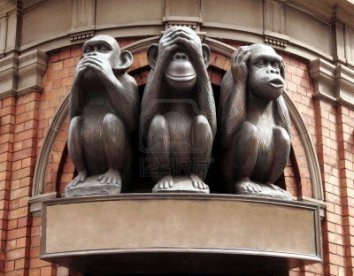Romer follows up his critique The one reaction that puzzles me goes something like this: “Romer’s critique of RBC models is dated; we’ve known all along that those models make no sense.” If we know that the RBC model makes no sense, why was it left as the core of the DSGE model? Those phlogiston shocks are still there. Now they are mixed together with a bunch of other made-up shocks. Moreover, I see no reason to be confident about what we will learn if some econometrician adds sticky prices and then runs a horse to see if the shocks are more or less important than the sticky prices. The essence of the identification problem is that the data do not tell you who wins this kind of race. The econometrician picks the winner. Paul Romer Those of us in the economics community who have been unpolite enough to dare questioning the preferred methods and models applied in macroeconomics are as a rule met with disapproval. Although people seem to get very agitated and upset by the critique, defenders of ‘received theory’ always say that the critique is ‘nothing new,’ that they have always been ‘well aware’ of the problems, and so on, and so on.
Topics:
Lars Pålsson Syll considers the following as important: Economics
This could be interesting, too:
Lars Pålsson Syll writes Schuldenbremse bye bye
Lars Pålsson Syll writes What’s wrong with economics — a primer
Lars Pålsson Syll writes Krigskeynesianismens återkomst
Lars Pålsson Syll writes Finding Eigenvalues and Eigenvectors (student stuff)
Romer follows up his critique
The one reaction that puzzles me goes something like this: “Romer’s critique of RBC models is dated; we’ve known all along that those models make no sense.”
If we know that the RBC model makes no sense, why was it left as the core of the DSGE model? Those phlogiston shocks are still there. Now they are mixed together with a bunch of other made-up shocks.
Moreover, I see no reason to be confident about what we will learn if some econometrician adds sticky prices and then runs a horse to see if the shocks are more or less important than the sticky prices. The essence of the identification problem is that the data do not tell you who wins this kind of race. The econometrician picks the winner.
Those of us in the economics community who have been unpolite enough to dare questioning the preferred methods and models applied in macroeconomics are as a rule met with disapproval. Although people seem to get very agitated and upset by the critique, defenders of ‘received theory’ always say that the critique is ‘nothing new,’ that they have always been ‘well aware’ of the problems, and so on, and so on.
 So, for the benefit of all macroeconomists who, like Simon Wren-Lewis, don’t want to be disturbed in their doings — eminent mathematical statistician David Freedman has put together a very practical list of vacuous responses to criticism that can be freely used to save your peace of mind:
So, for the benefit of all macroeconomists who, like Simon Wren-Lewis, don’t want to be disturbed in their doings — eminent mathematical statistician David Freedman has put together a very practical list of vacuous responses to criticism that can be freely used to save your peace of mind:
We know all that. Nothing is perfect … The assumptions are reasonable. The assumptions don’t matter. The assumptions are conservative. You can’t prove the assumptions are wrong. The biases will cancel. We can model the biases. We’re only doing what evereybody else does. Now we use more sophisticated techniques. If we don’t do it, someone else will. What would you do? The decision-maker has to be better off with us than without us … The models aren’t totally useless. You have to do the best you can with the data. You have to make assumptions in order to make progress. You have to give the models the benefit of the doubt. Where’s the harm?
